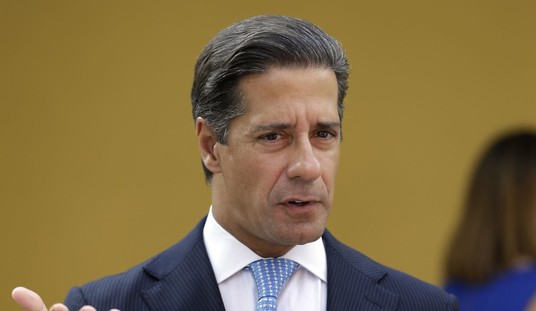This public rebuke of James Comey’s demand for an apology after getting thoroughly rebuked by Inspector General Michael Horowitz is notable for two reasons. First, it comes from Jonathan Turley, more known as a liberal voice in politics. And second, the reference to The Caine Mutiny has more nuance to it than it first seems.
Turley writes that the former FBI director has become lost in his own self-made mythology:
Two years ago, former FBI Director James Comey came out with a book that celebrated himself as a paragon of “ethical leadership,” a subject that he later taught at the College of William and Mary. Comey declared, “Ethical leaders lead by seeing above the short term, above the urgent or the partisan, and with a higher loyalty to lasting values, most importantly the truth.” If that is the case, the new Justice Department inspector general report released on Thursday establishes that Comey is the very antithesis of the ethical leader he described. Comey was found to have violated both federal law and regulations for his own gain, and he made critical decisions that put personal over institutional interests.
Nevertheless, Comey released a statement portraying the scathing report as a type of victory and encouraged his critics to send their apologies to him. It was a “Captain Queeg” moment when myth borders on madness. Rather than rave about who stole his strawberries, as Queeg did in “The Caine Mutiny,” Comey claims someone stole a reputation that he tossed away two years ago. …
Of course, facts are largely immaterial in matters of mythology. When Comey removed FBI material and arranged for a leak to the media, the coverage stayed positive despite some of us noting that the “memos” removed by Comey were FBI material and potentially classified. At a minimum, he violated clear rules against leaking such information to the media, a curious decision for the person tasked previously with finding leakers. I noted that such leaks were entirely unnecessary, given other options for getting this information to investigators and to Congress.
Comey’s self-made mythology reached its apotheosis yesterday, Turley argues:
Comey knows that, ultimately for him, none of this matters. He has magnanimously accepted the apologies that no one has offered and claimed vindication that appears nowhere in the inspector general report. That is simply the benefit of being the author of your own mythology.
Comey may have built his own mythology, but as Turley also notes, he got plenty of assistance from the national media in amplifying it. Despite obvious issues from the very start about Comey’s actions, media outlets more interested in attacking Donald Trump than in reporting the news helped fix the halo over Comey’s head.
“Comey was building a personal brand,” Turley writes, even though his rush to get a self-promoting book about leadership into print should have prompted media outlets to at least consider its inappropriateness for someone who had just left a key law enforcement position. After all, it had just been a year or so after leaders of both parties had demanded Comey’s head for politicizing FBI investigations. Instead of taking a skeptical and objective approach to Comey’s book and self-promotion, Turley recalls that the media “met [him] with palm fronds and cries of ‘hosanna’.”
In today’s Wall Street Journal, Kim Strassel also takes the media to task over its love affair with “sneaky, leaky” Comey in light of Horowitz’ findings:
For more than two years, we’ve heard Mr. Comey’s characterization of his actions, popularized by an adoring media: He felt compelled to memorialize his private discussions with the president, to protect the FBI. He had no choice but to use an intermediary to leak memo contents, to save the nation by forcing the appointment of a special counsel. He was entitled to do so because the memos were his personal papers, and by that time he was a “private citizen.”
The inspector general calmly and coolly dismantles these claims. …
Mr. Comey clearly detested Mr. Trump from the start. He abused his power and used leaky, sneaky tricks to undermine the presidency. Mr. Comey told the inspector general he had to do it because it was important to “the Nation,” and “I love this country.” Mr. Horowitz has no time for such self-justification: “Comey’s own, personal conception of what was necessary was not an appropriate basis for ignoring the policies and agreements governing the use of FBI records.” The report points out that if every FBI official acted on “personal convictions,” the bureau “would be unable to dispatch its law enforcement duties properly.”
This is the real merit of the inspector general’s report—its clear, ringing reminder that the rules apply to all. Still, it should disturb Americans that a man who has now been repeatedly admonished for “acting unilaterally”—and who so dishonestly spins his actions and history—held positions of such power for so long.
To extend the Caine Mutiny reference, Comey may well have been Captain Queeg with the strawberries, as in the first clip below from the classic film. But if that’s the case, then the second clip captures the role of the national media and the promotion of Comey’s mythology in the character of Keefer. Here’s to you, media outlets …








Join the conversation as a VIP Member